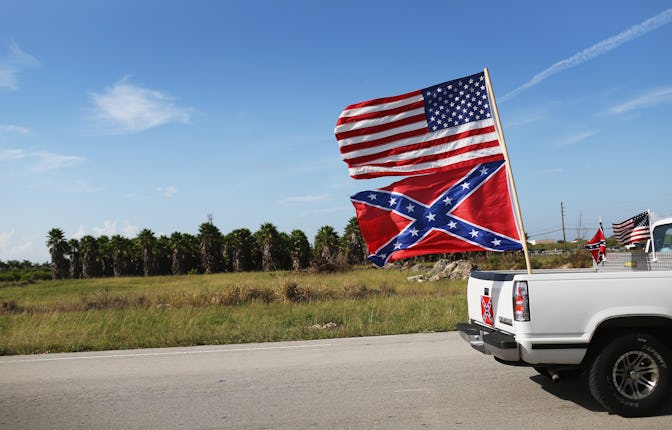Living near racists can literally make you sick
New research links living in more racist communities to bad health outcomes for everyone — including white people.

Most people reading this will heartily agree that white supremacy is bad for everyone. The many ways that racism hurts all of us, even white people, are well-documented. But there’s always some far right half-wit whose refrain echoes the most inane playground bully. “Prove it,” they say. Well, okay then. This new body of research suggests that even just living close to racists is bad for your physical and mental health.
The study, which was released today in the journal Health Psychology, analyzed data from 14 recent studies that had gathered data from Google, Twitter and other big-data sources, EurekAlert reported. Researchers used tens of millions of data points from internet searches, surveys and social media posts in order to measure community level racial prejudice. Some of the ways they used to determine racial prejudice included data from Google Trends on how often users searches included racial slurs and analyzed tweets that included negative perceptions of POC.
All of the studies the researchers looked at found a correlation between expressions of racial prejudice and negative health outcomes for POC, which isn’t surprising. But four of the studies they analyzed also showed similarly negative health outcomes for white people, and two more showed that high racial prejudice in a community was associated with smaller, but still clinically relevant, negative health outcomes for white people when compared to POC in the same communities.
In case you’re wondering, the negative health outcomes that researchers found to correlate with high levels of prejudice were pretty varied. They included everything from increased mental health issues to heart disease to higher mortality rates, EurekAlert reported. Areas with high levels of racial prejudice also had self-reported lower levels of heath, poorer cardiovascular health, and adverse outcomes for mothers and infants.
“Living in an environment with an overall climate that is prejudiced against people of color is not only bad for racially marginalized groups, but for everyone,” Amani M. Allen, a professor of community health sciences and epidemiology at the University of California Berkeley School of Public Health and senior author of the study, told EurekAlert. “Area-level racial prejudice is a social determinant of population health.” In other words, living in a region with a lot of racists seems to put everyone’s health at risk.
Researchers can’t say why, exactly, the problem of racial prejudice plays out in community health so negatively, but they have some theories. One is that prejudice may erode the norms of social trust and obligation in a way that gives people in that community less of a social buffer against stressful events. Another theory is that prejudice may be associated with low political support of programs that would enhance community health, according to EurekAlert.
None of this has an easy fix. “Because racism is multidimensional, dismantling it and its effects on health will require multidimensional solutions,” Eli Michaels, a doctoral candidate at the University of California and lead study author, told EurekAlert. Research like this may not give us those solutions, but it may help those resistant to antiracist values realize the very real consequences of racism for all members of society.